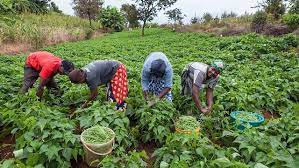The World Bank has predicted that the recent military takeover of government in Niger Republic will likely mount additional pressure on the region’s food markets, with the attendant implications for rising prices for food items.
The Washington D.C-based development finance institution made this forecast in its September Food Security update and the bank’s response to the challenges.
The report indicated that about 7 million people in the sub-region could experience food insecurity over the coup in Niger and the subsequent sanctions by ECOWAS.
The bank clarified: “The coup d’état in Niger might put additional pressure on West African food markets. Against a backdrop of soaring commodity and staple food prices and severe food insecurity affecting 3.3 million people during the lean season, the Nigerien coup d’état puts an additional 7 million people at risk of falling into severe food insecurity.
“As a response to the coup, the Economic Community of West African States and the West African Economic and Monetary Union have imposed a series of economic and financial sanctions on the country, with implications for the food security of Niger’s population”, it added.
The Breton Woods institution noted that in West Africa, the population of people in need of food assistance surged from 10.7 million in 2019 to almost 40 million in 2022 and partly attributed the region’s food insecurity to “civil insecurity and conflict, which have led to forced displacement; climatic shocks; political instability; the consequences of the COVID-19 pandemic; and the war in Ukraine.”
According to the bank, food prices, including major staple foods, will rise in the near term on the back of the geopolitical and economic malaise.
The World Bank further noted that the current food prices of the main staple and imported food products remained higher than during the same period last year.
On its efforts to alleviate the food insecurity challenge in the sub-region in recent times, the World Bank stated: “The $766 million West Africa Food Systems Resilience Program is working to increase preparedness against food insecurity and improve the resilience of food systems in West Africa.
“The program is increasing digital advisory services for agriculture and food crisis prevention and management, boosting adaption capacity of agriculture system actors, and investing in regional food market integration and trade to increase food security”, it added.
In addition, it explained that there was an extra $345 million under preparation for Togo and Sierra-Leone.
Over the past months, food inflation has been rising at supersonic speed in many of the countries in West Africa.
For instance, in Nigeria, the National Bureau of Statistics (NBS) reported last week Friday that the nation’s food inflation rate rose to 29.34% in August compared to Ghana’s food inflation for July, which stood at 55%.






